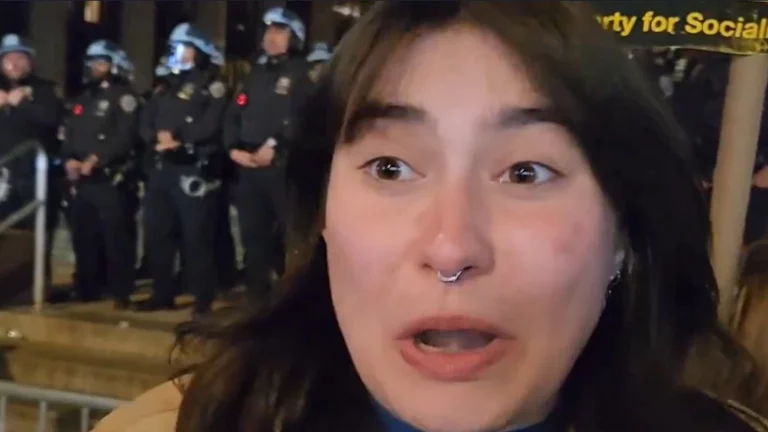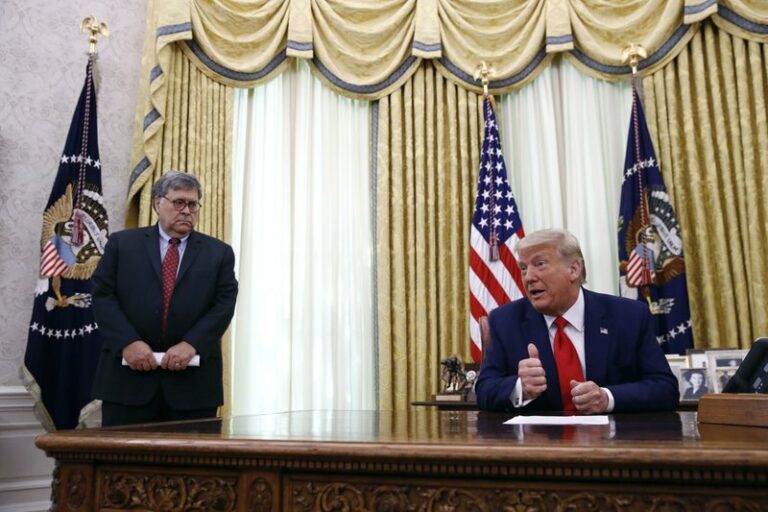 Brooklyn, NY – If it was not the May 1, Yom HaShoah Annual Holocaust Memorial Observance Program at Yeshivah of Flatbush High School — you would never, in a million years, imagine the beautiful, elegant blonde haired woman on the stage to be a survivor of the Nazi hell in which at least 6 million other Jews perished.
Brooklyn, NY – If it was not the May 1, Yom HaShoah Annual Holocaust Memorial Observance Program at Yeshivah of Flatbush High School — you would never, in a million years, imagine the beautiful, elegant blonde haired woman on the stage to be a survivor of the Nazi hell in which at least 6 million other Jews perished.
You would expect her to speak about her paintings, her art gallery in Boro Park or her 40 great-grandchildren.
But after Dean of Students Rabbi Naftali Besser made his opening remarks, after Rosh HaYeshivah Rabbi Raymond Harari read from Yechezkel, and after Congressman Anthony Weiner concluded a brief speech with “Am Yisroel Chai,” Mrs. Lola Lieber was escorted to the stage by her son Hershel Lieber. There, mother and son engaged in an intimate conversation under the spotlight — a unique and compelling method to convey her story — not the whole story — but enough to stun the audience. Hershel would ask, “So, Ma, tell us about…” or “So Ma, what was it like to…” Horrific stories emerged from the back and forth dialogue, such as:
How the war began for her at the age of sixteen, two days after the Nazis marched into Krakow, when she witnessed a German soldier swing a baby by its feet and smash its head into a wall.
The daring trip she made to confront Adolf Eichmann face to face, to plead for her husband’s life after he was arrested by the Nazis.
How she ran, with her husband Mechel, from country to country hiding from the Nazis, until the final days leading up to Liberation in Budapest when she was sick and starving, and someone cooked a pot of noodles and offered her only the boiled water to drink — and she was grateful for that.
How, when the war was already pronounced ‘over,’ Russians soldiers mistook the Liebers for spies and prepared to shoot them. “Put your hands up!” the soldiers commanded, raising their machine guns. Mrs. Lieber recalled, “We started to scream SHEMA YISRAEL and waited for the shots.” Miraculously, other Russian soldiers arrived, who recognized the prayer and shouted “Stop! Don’t kill them. They’re Jews.”
At one point during their six year ordeal, Mechel told his wife, “There will be a world after this.” Aptly, Lola Lieber entitled her book “A World After This: A Memoir of Loss and Redemption.” (You can order it at lolalieber.com.)
Interviewing Mrs. Lieber and family before the ceremony, I was told her three children pushed her to write the book and to speak at the Yeshivah of Flatbush Yom HaShoah Commemoration.
“I learned from my mother what it means to be a survivor,” said Mati Jacobovitz, Lola’s daughter.
Lola’s daughter-in-law, Pesi Lieber, said, “Her experiences made her a person who saw that everything comes from G-d.”
From her other daughter-in-law, Idii Lieber: “She’s an incredible woman. At her age, she has more vigor than people half her age. Most survivors don’t like to talk about the Holocaust. She talks about it to make sure it won’t happen again.”
Following Mrs. Lieber’s talk, Yeshivah of Flatbush choir director Brian Gelfand, and drama director, Sally Shatzkes, led students in an eerie performance called Music and the Holocaust. The students, dressed in black and wearing yellow Stars of David, alternated with the Shir Chadash Choir (directed by Natasha Hirschhorn and Rachel Brook) and Chamber Trio (composed of Leslie Grazi on flute, Rebecca Grazi-Siev on violin, and Frank Verbsky on cello).
According to Sally Shatzkes, “We are recreating music from the era of the Holocaust, written in response to the Holocaust, and performed during the Holocaust.” The Mozart piece performed during the ceremony, for example, was one of the classical melodies Jewish musicians were forced to play while their friends and family members stood on line at the gas chambers.
After the performances, the audience stood, teary-eyed, heads bowed, for Kel Maleh Rachamim, sung beautifully by Rabbi Besser.
Filing out of the auditorium, the audience was invited to wander through the Afikim Foundation Photo Exhibit, “When Humanity Fails,” displaying photographs of family members of Yeshivah students, many of whom were murdered by the Nazis.
“Cherish your parents and siblings and children, because it’s terrible to lose everybody,” Mrs. Lieber told me. “Let’s hope it will never happen again.”
(By Beth Sarafraz – YWN)






8 Responses
Very touching. Everybody loves Raymond but I don’t quite understand what it means to “hope” it will never happen again.
Wow. Very touching and well written.
“The Mozart piece performed during the ceremony, for example, was one of the classical melodies Jewish musicians were forced to play while their friends and family members stood on line at the gas chambers”, I had no idea. As a fan of classical music I don’t know if I could relax to Mozart again, knowing that my people marched to their deaths listening to that music.
a beautiful, and important, story
it’s good to hear schools are still putting effort into holocaust commemoration ceremonies and aren’t slacking about it. the only horror worse than the holocaust would be to forget it ever happened.
on the article itself, well written…very to-the-point yet still moving…i look forward to more articles like this
The Kedoshim HY”D certainly must be remembered for so may reasons; 1) “zechor y’mos olam, binu shnos dor va’dor”, 2) sh’al Avicha v’yagedcha, Z’keinecha v’yomru lach”, 3) we must learn what emunah p’shutah is, 4) we must learn what mesirus nefesh means, 5) our leaders have all said so, and there are so many more. My only question is, and it is not really mine, is why is Chodesh Nisan the appropriate time to remember? Is it even permissible since one may not eulogize during this month. (Perhaps if “the Tzadik would be in front of us which is not the case here.) Remember. Teach. Learn. Grow. But not at all costs. Not at the cost of truth; “Toras Emes noson l’amo Keil.” Not at the cost of mitzvos; Mitzvah goreres mitzvah and aveirah goreres aveirah. Obviously this halachah of issur hespaid v’taanis was mistakenly overlooked by the school administration, but I am certain that the Kedoshim and the survivors – especially those who merited through tremendous sacrifice to raise generations of Torah observant men and women – would want it no other way.
And the fact that live music was played is proof that the days of national mourning were not being observed (in accordance with minhag Ashkenaz) so how was hespaid and the Keil molei permitted?
Shauli- I guess the same way we say Keil Malei Rachamim on shmini shel Pesach
Beautifully written and very moving.